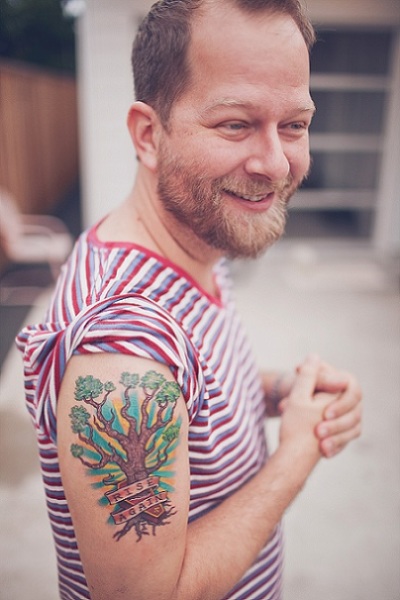Pat Robertson Says Tattoos, Even Christian Ones, Are 'Heathen'

Televangelist Pat Robertson has weighed in on whether or not Christians should get tattoos, stating that it is a "heathen practice" to get a tattoo.
On a Wednesday installment of the long running program "The 700 Club," Robertson was asked by a viewer about his opinion on Christians getting tattoos.
During the "Bring It On" segment of the program, a viewer named "Glenn" asked about whether or not a Christian tattoo was acceptable.

"My friend was thinking about getting a tattoo of Jesus on the cross on his upper back. Is getting a tattoo of Jesus a sin? I see many people with religious tattoos. Does that make it okay?" asked Glenn.
Robertson responded that "it doesn't make it OK, because it's religious, believe me." He then asserted that getting tattoos is a "heathen practice."
"I mean it could be just the same as a tattoo of some hoochie-cooch girl. I mean, it doesn't really make any difference," said Robertson.
"You look at the Bible, the people are told not to mark their bodies and cut themselves like the heathen did. Tattooing is a heathen practice, it is not a Christian practice."
In some Christian circles, tattoos have become an increasingly acceptable way of expressing one's religious convictions.
In late 2011, for example, the Flint, Michigan-based nondenominational church The Bridge opened up a tattoo parlor called Serenity Tattoo.
"There's a huge misunderstanding in the American church today that the church is a building," said Bridge head pastor Steve Bentley.
"It's not a physical location. The church is us. We use our space for whatever we can to serve the Lord and our community."
In 2012, members of the Ecclesia Church in Houston, Texas, got tattoos depicting the crucifixion and death of Jesus Christ as a way to observe the season of Lent.
"This art show is something we do every year to share the story of Jesus with our city," said Chris Seay, a pastor at the Ecclesia Church, in an earlier interview with The Christian Post.
"This year we wanted to engage an art form that has not been embraced by the church but it is common among people in our part of the city. Next year it will be a different art form, maybe crochet."
According to Leviticus 19:28, "Ye shall not make any cuttings in your flesh for the dead, nor print or tattoo any marks upon you: I am the Lord."
In a column for CP in 2010, the-late Chuck Colson remarked that rather than getting a tattoo, Christians should think of more spiritual marks for themselves.
"Some believers argue that there's nothing wrong with a Christian-themed tattoo, like the cross. And Christians who get them do so out of love of Christ. But believers ought to ask themselves which sort of mark God would prefer," wrote Colson.
"Tattoos last a lifetime-unless they are painfully removed. But the spiritual marks of a Christian last through all eternity."
Proponents of Christian tattoos, like Seay, have countered that the Levitical prohibition was meant solely for differentiating believers from pagans and is culturally excluded to the time of Ancient Near East.
Seay told CP in 2012 that the context of the verse is important, noting that later in Leviticus 19 it states that a man should not cut the hair on the sides of his head or the edge of his beard.
"The problem was not with tattoos, but with the fact that getting a tattoo or cutting your hair/beard was a symbol that identified you with the worship of pagan gods," said Seay.
"Tattoos do not carry any of that meaning in our culture and that is why we go to the barber shop and some chose to express their story with art on their skin."




























